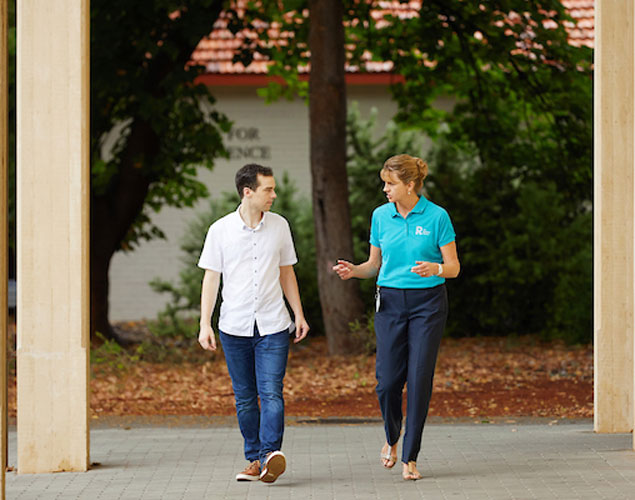Roland Kerr is a member of the Community Advisory Committee as well as a Gen2 participant in the Raine Study. The Community Advisory Committee is made up of participants from the Gen1 and Gen2 cohorts and it is their role to provide input and a community perspective into Raine Study activities.
The Raine Study has been a part of Roland’s entire life and we had a chat to him about what it means to him and why he continues to volunteer his time.
The Raine Study has been part of your entire life; what does it mean to you? Why do you keep participating?
For as long as the Raine Study continues to discover more about our health, and the way that we grow up, my continued participation is a way for me to give back to society and to follow its journey from up close.
I love that we always get a little insight into our understanding of medicine and what people are curious about from the tests that researchers want Raine Study participants to do.
What has your experience with the Raine Study been over the years? How has your perception of what you have been involved in changed from when you were a child, teenager and now adult?
When I was a young child I just assumed that the Raine Study tests were part of a regular checkup with doctors that everyone did!
When I became a part of the T-team (Teenage Raine Study Advisory Group), I became a lot more aware of how rare it was to be in the Raine Study, and therefore how important it was for study that we didn’t have anyone drop out.
Now that I’m an adult, the biggest change has really been that I can now see the results of research that has used the Raine Study data, and I can appreciate how my own health has been improved from having frequent check-ups.
I can better appreciate the benefits of the Raine Study globally, and for me personally.
Why do you see the Raine Study as important?
There aren’t very many pre-natal studies out there, and here we are able to look over and cross-reference everything about the participants from that early on. I think there are all sorts of connections between our birth, our growth, and our lives, that might otherwise never be noticed. Especially with the Gen1 (parents) and Gen3 (children of Gen2) participants taking a bigger role, we can see how inheritable certain things are, and how we can better manage conditions in childhood for a better adulthood.
What has been your most memorable Raine Study moment over the years?
There are a lot of happy moments that come in as close seconds like the armbands we wore at school, or the time we got to watch a movie while waiting for the CO2 test, but it probably is the stress test / improvisation test. Unlike most of our participants, I knew a little bit about what was going to happen well ahead of time, but it was still quite a shock to the system!
Why did you choose to be part of the Community Advisory Committee?
The Community Advisory Committee opening up was a great opportunity to have my say on the future direction of the Raine Study. I care a great deal to see the Raine Study continue to succeed, and I want to stay in touch with the other children, staff, and researchers, that I’ve spent all these years around.

